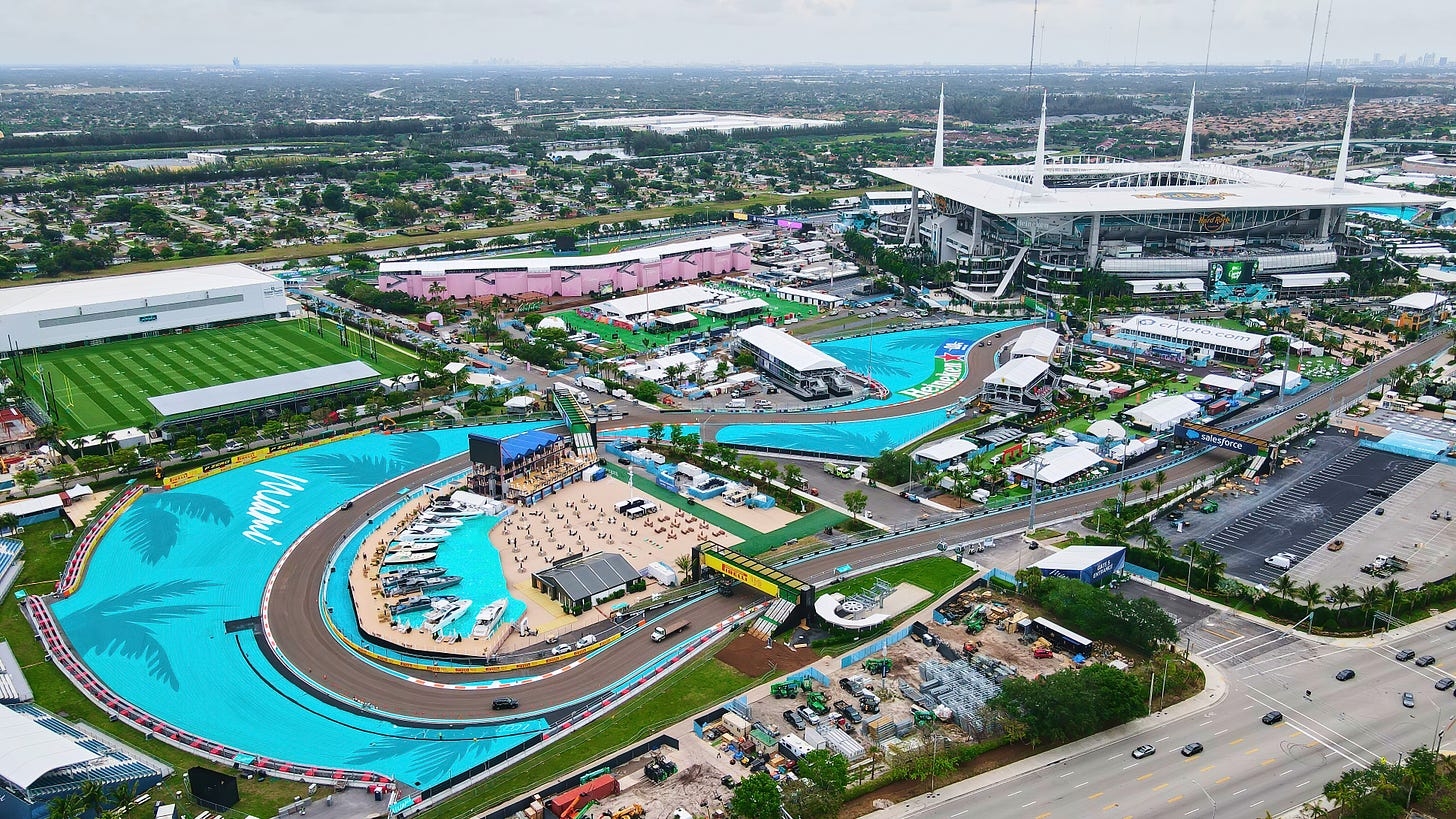Miami's vice like grip takes hold of global sport
How the Florida city is fast becoming one of the industry's most important hubs
Spanish football club FC Barcelona recently announced that it is moving its commercial operations from New York to Miami.
This follows a move in 2023 by football’s world governing body FIFA to relocate members of its legal department and audit, compliance and risk management teams to the city.
Also in 2023, the Argentinian Football Association opened a US headquarters in Miami which included a dedicated national team training facility in the city, youth academy, and the creation of a sports leadership program at Florida International University.
All of this followed the Confederation of North, Central America and Caribbean Association Football moving there in 2018.
Miami isn’t just an administrative capital, it hosts multiple events including a Formula 1 Grand Prix; it has also staged American football’s Super Bowl a record eleven times.
This summer, the city will host matches played as part of the FIFA Club World Cup and in 2026 FIFA men’s World Cup matches will take place there.
Franchises and teams also play an important role in the fast emerging Florida ecosystem, an established roster that includes Miami Dolphins (NFL), Miami Heat (NBA), Miami Marlins (MLB), and Inter Miami CF (MLS).
The ecosystem is also populated by numerous sport businesses, such as Genius - a sport technology and data specialist.
There are several reasons why Miami is fast becoming one of the world’s most important sport business centres: world-class infrastructure and venues, favourable climate, strong tourism and hospitality sectors, strategic location and accessibility, a strong local economy and accompanying corporate support, a passionate and diverse local fan base and proven experience in hosting major events are among them.
Yet the proactive efforts by local organisations to boost Miami’s profile are significant.
For instance, the Miami Downtown Development Authority provided a business incentive grant to FC Barcelona, helping them move their commercial operations to the city.
At the same time, organisations like the Greater Miami Convention & Visitors Bureau have dedicated sports and entertainment tourism departments that actively work to attract, promote, and retain sporting events.
And given Donald Trump’s (a Miami resident) second-term engagement with sport, his influence on the industry locally shouldn’t be discounted.
As New York strives to continue being the financial capital of world sport and Riyadh seeks to establish itself as the sport event capital, Miami has arguably become their most effective (and perhaps biggest) rival.
Partly this is a result of free market economics, though the role of local government agencies is also playing a part.
In combination with a strategic location, significant diaspora communities, and a climate that is conducive to playing sport all year, the city is now a ‘go to’ destination.




